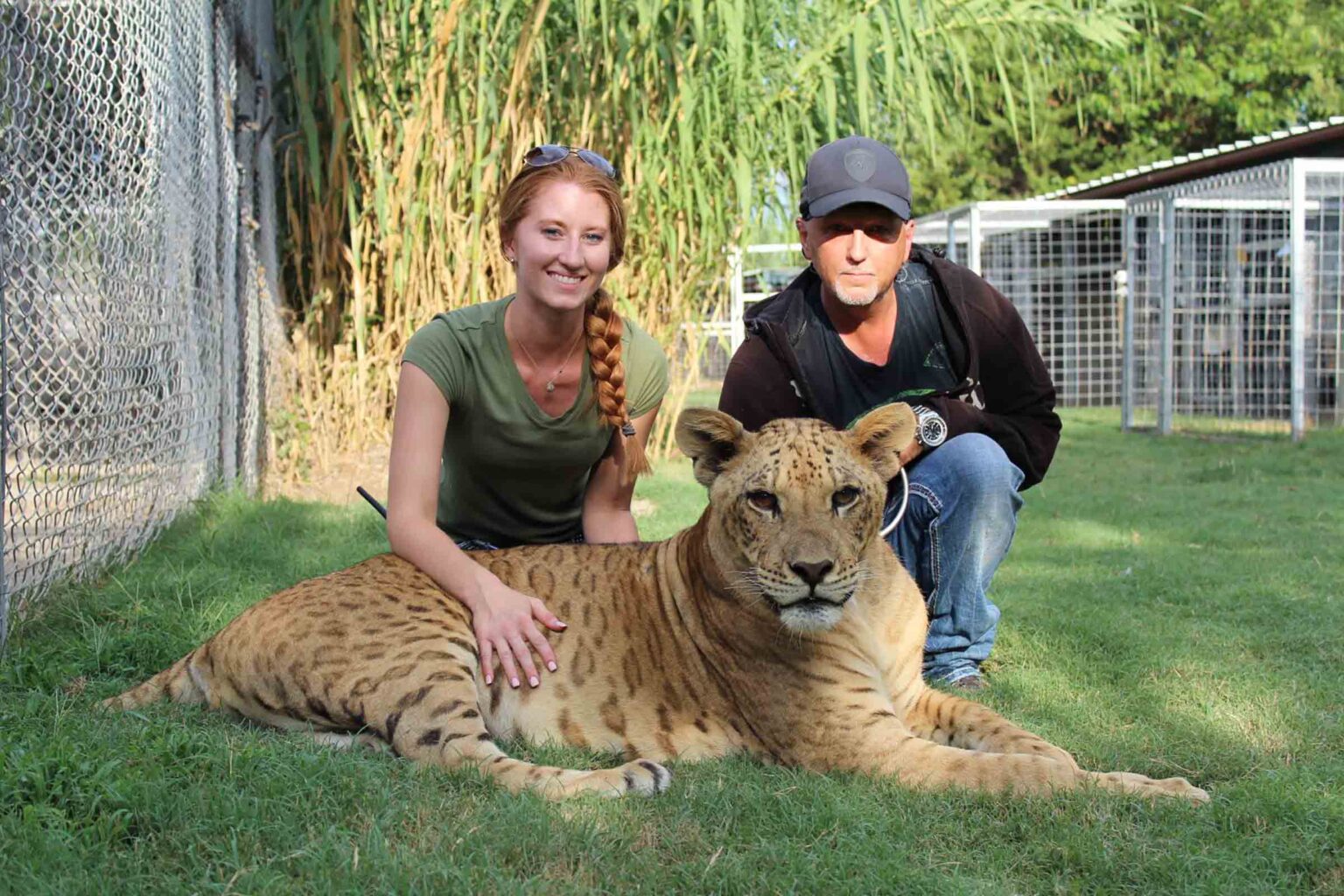
Is Jeff Lowe neglecting animals? Inside the drama at Joe Exotic’s zoo
The Netflix documentary Tiger King: Murder, Mayhem and Madness ought to be called the drama that keeps on giving. The latest dish on the real life drama is Jeff Lowe and his wife Lauren, owners of the Greater Wynnewood Exotic Animal Park, are being sued by the U.S. government for cruelty to animals in the park formerly owned by Joe Exotic.

Wildlife watchers
The Department of Justice has sued the Lowes, alleging “recurring inhumane treatment and improper handling” of tigers & lions. Lowe hasn’t commented but has previously accused the government of making “false accusations” against him. He took over the Oklahoma zoo from his ex-business partner Joe Exotic in 2016.
Greater Wynnewood Exotic Animal Park, which housed more than 230 tigers & lions, has been targeted in a series of inspections by the United States Department of Agriculture (USDA). Lowe has said the agency had bowed to pressure from animal rights charity PETA, and that his park had become a target for “every nut job & animal rights loon in the world”.
On October 19, 2020, the Department of Justice (DOJ) said it filed a civil lawsuit against Lowe and his wife Lauren, accusing them of “illegally taking, possessing, & transporting protected animals” including a grizzly bear and ring-tailed lemurs as well as tigers & lions, and “placing the health of animals in serious danger”.

Little lion
In August 2019, Lowe, posted a photo of lion cub Nala to Instagram in August 2019. “How many likes can our little cutie Nala get?” the caption read. She got 199. Ten months after Lowe introduced Nala on social media, U.S. Department of Agriculture (USDA) inspector Bonnie Boone found her lying in mud, “lethargic, depressed and thin”.
Boone & colleague Debbie Cunningham were conducting a routine inspection of the zoo originally owned by Joe Exotic, which exploded in popularity after it was featured in Netflix’s Tiger King. The young lion was barely moving and had discharge coming from her eyes & nose, Boone wrote in the inspection report. Her breathing was shallow and rapid. Boone demanded that Nala see a veterinarian immediately.
Boone & Cunningham also documented two arthritic wolves caged on a concrete floor, a grizzly bear with her bones clearly visible beneath her skin, a fisher cat with a lame leg, and the bodies of two tigers buried under a pile of burned rubble. The corpses were attracting biting flies that inflicted bloody wounds on the ears of nearby tigers, bears, & wolves.

Suspended service
On August 17, 2020, the USDA suspended Lowe’s license to exhibit animals to the public, as part of an official enforcement action against him and his wife, Lauren Lowe, for allegedly violating the Animal Welfare Act.
In response to the suspension, which was set to last for twenty-one days, Lowe announced in a social media post that he was forfeiting his license. Typically, this would mean the end of his business – there’s little point in keeping animals that don’t return a profit on their upkeep costs.
However, Lowe had a new plan. It’s one that legal experts and even the USDA say might be in violation of the law. He’ll continue to make money off his animals by showing them to the public – but the business will be online and on television instead of in person at his zoo.

Online lacklaw
After closing Greater Wynnewood Exotic Animal Park to the public, on October 5, 2020 Lowe moved all the animals to a new facility, Tiger King Park, in Thackerville, Oklahoma. The Greater Wynnewood property was already set to be handed to Big Cat Rescue, a Florida sanctuary organization owned by Carole Baskin, as the result of a separate court case with former owner, Joe Exotic a.k.a. Joseph Maldonado-Passage.
Lowe said he intends to use Tiger King Park as a private film set for “Tiger King-related content.” He’s promised two upcoming reality shows and continues to feature animals in paid “shout-out” videos on the social platform Cameo.
With this move, Delcianna Winders, of the Animal Law Litigation Clinic, at Lewis & Clark Law School stated, Lowe challenges the USDA to follow him down an uncharted path. Exhibiting wild animals for money without a license is illegal under the Animal Welfare Act, whether it’s done at a brick-and-mortar zoo, on television, or on the Internet. But when it comes to the Internet, there’s little legal precedent for enforcing the law.
–
As content featuring captive exotic animals on social platforms such as TikTok, Cameo, & YouTube becomes more popular than ever, the USDA now must decide whether to exert its authority over profit-driven online animal exhibitions or risk setting a troubling precedent, Winders says.
What do you think? Let us know in “Comments” below.







